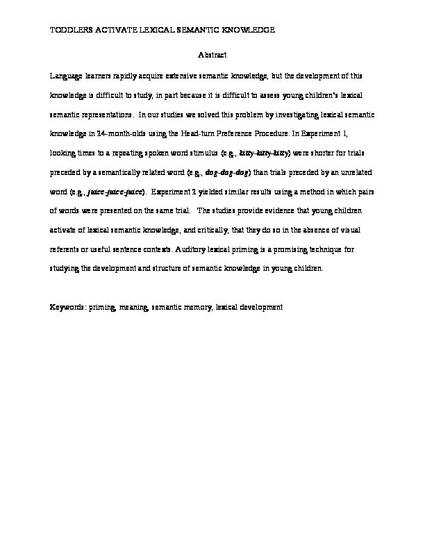
Language learners rapidly acquire extensive semantic knowledge, but the development of this knowledge is difficult to study, in part because it is difficult to assess young children's lexical semantic representations. In our studies, we solved this problem by investigating lexical semantic knowledge in 24-month-olds using the Head-turn Preference Procedure. In Experiment 1, looking times to a repeating spoken word stimulus (e.g., kitty-kitty-kitty) were shorter for trials preceded by a semantically related word (e.g., dog-dog-dog) than trials preceded by an unrelated word (e.g., juice-juice-juice). Experiment 2 yielded similar results using a method in which pairs of words were presented on the same trial. The studies provide evidence that young children activate of lexical semantic knowledge, and critically, that they do so in the absence of visual referents or sentence contexts. Auditory lexical priming is a promising technique for studying the development and structure of semantic knowledge in young children.
- priming,
- meaning,
- semantic memory,
- lexical development
